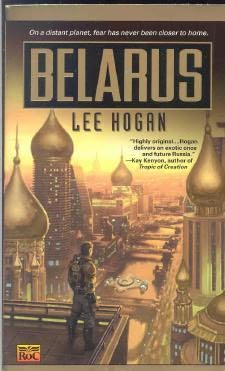My Dear Sleepy Headed Wife
 This is a photograph of my wife, Jewel Rosa. I arrived home from work one day to find her in this position, by the window. When I asked her what she was doing, she chose to remain silent and unmoving.
This is a photograph of my wife, Jewel Rosa. I arrived home from work one day to find her in this position, by the window. When I asked her what she was doing, she chose to remain silent and unmoving.Naturally, I assumed that I had done something to offend her. I spent several minutes wracking my brain for the possible faux pas I may have committed. I searched the townhouse for a letter or note--anything that might tell me what I had done. There were no messages from my wife on my phone or email--nothing! Finally by observing Jewel Rosa closely, I determined that she was not breathing. Shining my pocket flashlight into her eyes revealed a lack of pupillary reflex. I became concerned.
Placing my finger against her neck, I felt in vain for a carotid pulse. Knowing from experience that a person with very low blood pressure may have only a faint pulse, I persisted in my palpations. Then I realized with a sinking feeling, that Jewel Rosa's skin was somewhat close to room temperature. I clung for reassurance to the slight warmth that I detected, until I realized that the sun shining through the window was warming my wife's body.
I looked more closely for signs of capillary refill. There was none. But there was no sign of livor mortis. Her joints could be moved, passively, so there was no rigor mortis. There were certainly no signs of decomposition. I was confused by conflicting thoughts and emotions.
So I decided to observe Jewel Rosa for a longer period of time. For several weeks, I would watch her by the window, mornings and evenings. I had to travel out of town a few times, for a few days at a time--on business. Each time I returned, Jewel Rosa was in the same position, with no change in her physical signs.
Eventually I realized that my wife was obviously in some type of hibernation--suspended animation. I searched the townhouse again for an indication of my wife's pre-hibernation intentions. Still nothing. I had to leave town for two weeks on business.
When I got back, after determining that Jewel Rosa's stasis was unchanged, I made the decision to publish a paper describing a new form of human hibernation. For several months, my wife had remained by the window in one position, with no sign of physical deterioration. Although I had tried many times to feed her and give her fluids to drink, she refused each attempt. In spite of that, she appeared not to have suffered adverse affects from the lack of nourishment.
Finally, after a year had passed, I had compiled my data, and performed my statistical analysis. There was no doubt in my mind that I would receive a Nobel Prize in Medicine for this discovery, even though I had not yet discovered how to revive my dear sleepy wife from her suspension of activity.
Before mailing my manuscript to the editor of the New England Journal, I decided to clean up some of the accumulating garbage around the place. Several "past due" notices caught my eye. I always pay my bills. What could these bills be about? I began with the one with the most recent postmark. Horrors! A bill for US $5,575 plus late fees amounting to almost $5,000 more! From a company called Orient Doll!.
I proceeded to look at the past-due notices in reverse chronological order. As the language in the notices grew less threatening, I felt my nerves calming. Eventually, now almost my normal resilient self, I read a polite request for the return of a demo doll, referred to as "Jewel Rosa Robotic Prototype #6." "What does this mean?", I thought.
Later, after dinner, I tore myself away from my nightly observations of my wife, and went to bed. I had to leave early in the morning to get to my flight on time. Strange dreams filled my sleeping mind. Dreams of a visit to a robot factory, where all the robots were naked women. Dreams of being chased by hundreds of naked robo-girls, running for my life. Dreams of being late for an article deadline. Something about robo sex dolls. Something, something . . . I woke, my mind cloudy and confused.
I had time only to shower, shave, and drink a cup of coffee. Sparing a moment for one glimpse of my dear sleepy-headed wife by the window, I dashed for the door. My Dear Sleepy Headed Wife


